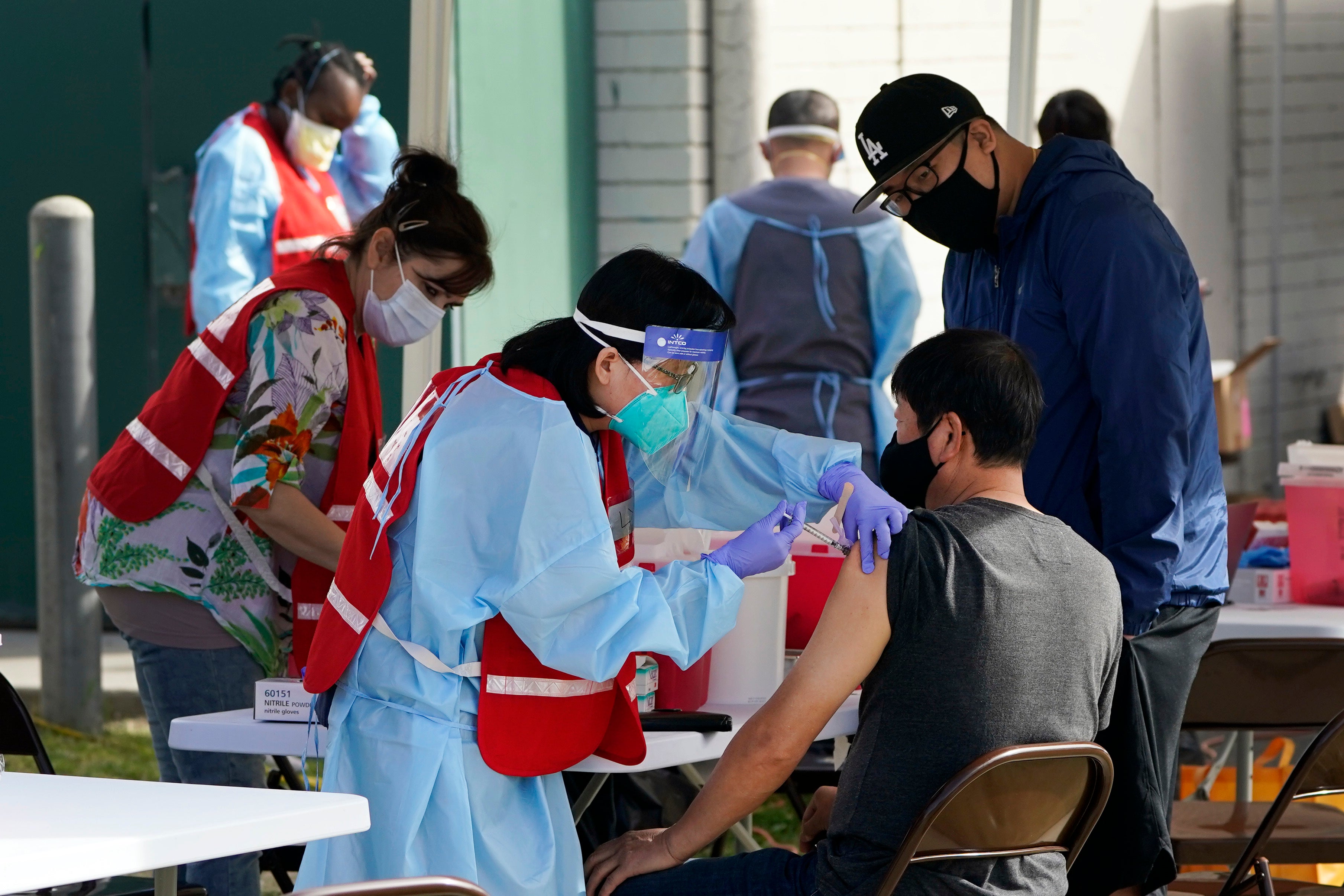Vaccines to stimulus checks: Here's what's in Biden plan
President-elect Joe Biden is proposing a $1.9 trillion plan to expand coronavirus vaccinations, help individuals and jump-start the economy

Your support helps us to tell the story
From reproductive rights to climate change to Big Tech, The Independent is on the ground when the story is developing. Whether it's investigating the financials of Elon Musk's pro-Trump PAC or producing our latest documentary, 'The A Word', which shines a light on the American women fighting for reproductive rights, we know how important it is to parse out the facts from the messaging.
At such a critical moment in US history, we need reporters on the ground. Your donation allows us to keep sending journalists to speak to both sides of the story.
The Independent is trusted by Americans across the entire political spectrum. And unlike many other quality news outlets, we choose not to lock Americans out of our reporting and analysis with paywalls. We believe quality journalism should be available to everyone, paid for by those who can afford it.
Your support makes all the difference.President-elect Joe Biden is proposing a $1.9 trillion plan to expand coronavirus vaccinations, help individuals and jump-start the economy. The plan, which would require congressional approval, is packed with proposals on health care, education, labor and cybersecurity. Here's a look at what's in it:
CONTAINING THE VIRUS
— A $20 billion national program would establish community vaccination centers across the U.S. and send mobile units to remote communities. Medicaid patients would have their costs covered by the federal government, and the administration says it will take steps to ensure all people in the U.S. can receive the vaccine for free, regardless of their immigration status.
— An additional $50 billion would expand testing efforts and help schools and governments implement routine testing. Other efforts would focus on developing better treatments for COVID-19 and improving efforts to identify and track new strains of the virus.
INDIVIDUALS AND WORKERS
— Stimulus checks of $1,400 per person in addition to the $600 checks Congress approved in December. By bringing payments to $2,000 — an amount Democrats previously called for — the administration says it will help families meet basic needs and support local businesses.
— A temporary boost in unemployment benefits and a moratorium on evictions and foreclosures would be extended through September.
— The federal minimum wage would be raised to $15 per hour from the current rate of $7.25 per hour.
— An emergency measure requiring employers to provide paid sick leave would be reinstated. The administration is urging Congress to keep the requirement through Sept. 30 and expand it to federal employees.
— The child care tax credit would be expanded for a year, to cover half the cost of child care up to $4,000 for one child and $8,000 for two or more for families making less than $125,000 a year. Families making between $125,000 and $400,000 would get a partial credit.
— $15 billion in federal grants to help states subsidize child care for low-income families, along with a $25 billion fund to help child care centers in danger of closing.
SCHOOLS
— $130 billion for K-12 schools to help them reopen safely. The money is meant to help reach Biden's goal of having a majority of the nation's K-8 schools open within his first 100 days in the White House. Schools could use the funding to cover a variety of costs, including the purchase of masks and other protective equipment, upgrades to ventilation systems and staffing for school nurses. Schools would be expected to use the funding to help students who fell behind on academics during the pandemic, and on efforts to meet students' mental health needs. A portion of the funding would go to education equity grants to help with challenges caused by the pandemic.
— Public colleges and universities would get $35 billion to cover pandemic-related expenses and to steer funding to students as emergency grants. An additional $5 billion would go to governors to support programs helping students who were hit hardest by the pandemic.
SMALL BUSINESS
— $15 billion in grants to more than 1 million small businesses that have been hit hard by the pandemic, as well as other assistance.
STATE AND LOCAL GOVERNMENT
— $350 billion in emergency funding for state, local and territorial governments to help front-line workers.
— $20 billion in aid to public transit agencies.
CYBERSECURITY
— $9 billion to modernize information technology systems at federal agencies, motivated by recent cybersecurity attacks that penetrated multiple agencies.
— $690 million to boost federal cybersecurity monitoring efforts and $200 million to hire hundreds of new cybersecurity experts.